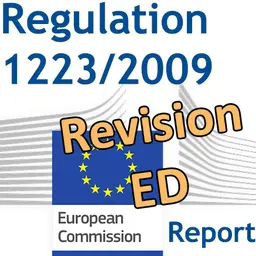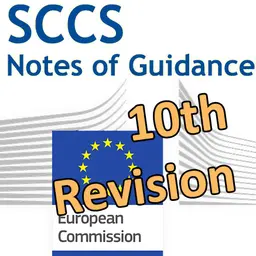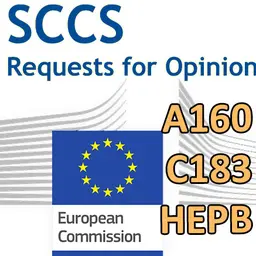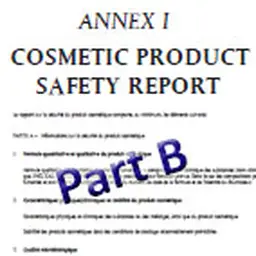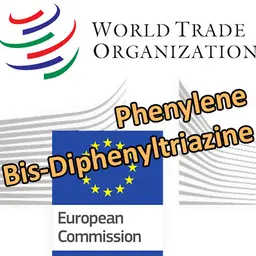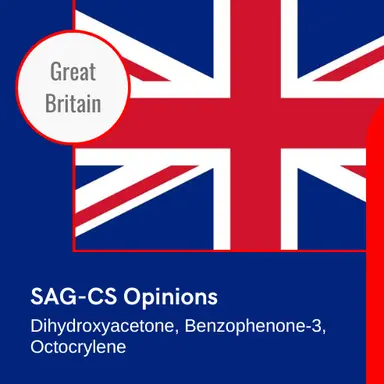
Three Final Opinions from SAG-CS, the British Scientific Committee responsible for assessing the safety of cosmetic ingredients, have just been published. They concern Dihydroxyacetone, Benzophenone-3 and Octocrylene. And their conclusions are all significantly different from the Opinions of the European SCCS and/or the regulations in force in the EU.
Dihydroxyacetone
Based on the evidence available to the SAG-CS, members agreed that dihydroxyacetone is acceptable for use by adults, at the stated concentrations, when used in the following cosmetic products to produce a tanned appearance or brown colour in the absence of UV light:
• Leave on self-tan (lotion and non-aerosol spray)- 14%
• Leave on self-tan (spray booth weekly application)- 14%
• Rinse-off self-tan (rinse-off lotion)- 22.5%
• Non-oxidative hair colourant (leave-on)- 6.25%
Members also agreed that dihydroxyacetone is acceptable for use by adults at the concentrations stated above when considering an aggregate usage scenario. This is the rinse-off self-tan (body) + non-oxidative hair colourant (hair) + leave on self-tan lotion (face) + rinse-off self-tan (pump sprayinhalation).
The SAG-CS noted the SCCS conclusions that the weight of evidence suggests that DHA is not genotoxic or mutagenic in vivo. The SAG-CS have not been able to draw conclusions on genotoxicity in vivo as the data were not available to them.
Given the lack of exposure studies and usage data specifically in children, the SAG-CS were unable to conclude on the safe use of DHA by children.
The Committee were of the opinion that adolescents aged 14-18 years may wish to …




